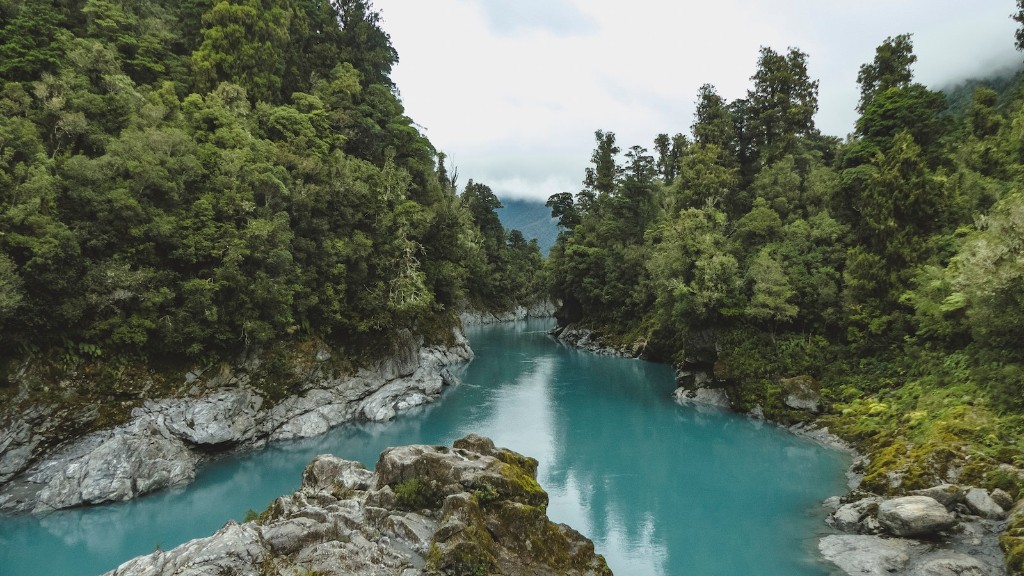Water Pollution
The Mississippi River is the fourth-longest river in the United States and the tenth-longest in the world. Unfortunately, due to water pollution, it is now considered one of the most contaminated rivers in the United States. Human activities such as industrial waste and agricultural runoff are to blame. As a result, the water quality in the Mississippi River is so poor that drinking it could be hazardous to one’s health. The water is not only unsafe for drinking, but it is also unsafe for swimming and fishing.
Dangers of Water Pollution
Water pollution presents a number of dangers to the human body. Its consequences can range from minor illnesses to more serious medical conditions, including organ damage and even death. The most common effects of drinking polluted river water are nausea, vomiting, and gastrointestinal distress. These are caused by microorganisms such as bacteria, fungi, and parasites that thrive in water with poor sanitary condition.
Impact of Pollution
The Mississippi River is a major source of drinking water for many cities and towns, so water pollution has a direct effect on humans. The water in the river is so heavily polluted that it can cause diseases such as cholera, hepatitis, dysentery, and, in some cases, even cancer. Pollution in the Mississippi River has had devastating effects on fish, birds, aquatic plants, and other wildlife.
Deteriorating Quality Of Mississippi River Water
In recent years, the Mississippi River has seen a sharp decline in its water quality. In 2017, the U.S. Environmental Protection Agency (EPA) found that the river had some of the highest levels of phosphorus and nitrogen pollution in history. Both of these pollutants can cause algae blooms, which can lead to oxygen depletion and, in turn, fish mortality. Additionally, large amounts of man-made chemicals are found in the river’s water, posing a serious health risk to anyone who attempts to swim, boat, or fish in it.
Effects Of Human Activity On Water Quality
Human activities are taking a toll on the water quality of the Mississippi River. These activities include industrial and agricultural runoff, urban sprawl, and the release of waste and sewage into the river. Runoff from farms and factories, for example, can introduce harmful chemicals and pollutants into the river, resulting in polluted water. Urban sprawl can also reduce the flow of water and increase sediment deposition in the river, further compromising its clarity and oxygen levels.
Government Regulation On Pollution
To improve the water quality of the Mississippi River, governments have issued standards and regulations outlining acceptable levels of pollution. The Clean Water Act, one of the oldest environmental laws in the United States, sets limits on the amount of pollution allowed in U.S. waterways. The state of Mississippi also issued the “Mississippi Pollution Control Laws” in 2010, which outlines water sanitation standards, water management practices, and pollution regulations.
Conclusion
In conclusion, drinking water from the Mississippi River could be hazardous to your health. The river is heavily polluted, and its water quality is decreasing due to human activities such as industrial and agricultural runoff and urban sprawl. While there are some government regulations put in place to help improve the water quality of the river, the pollution levels are still dangerously high. It is advised to stay away from the river in order to minimize exposure to its contaminated water.
Effects of Industrial Waste on Water Quality
In addition to agricultural and urban runoff, industrial waste can cause significant pollution in the Mississippi River. Industrial facilities often use the river as a dumping ground for their waste, as it is cheaper than other disposal options. This waste often contains pollutants such as heavy metals, hazardous chemicals, and other toxins. These pollutants can end up in the river, contaminating its water and posing a serious health risk to those who depend on it for drinking, swimming, and fishing.
Treatments of Polluted Water
Once the Mississippi River is polluted, it takes some time to restore its water quality. There are several treatments available for polluted water, such as aeration, coagulation, and flocculation. Aeration is a process that increases oxygen levels in the water, while coagulation and flocculation help to remove contaminants from the water. There are also technologies such as phytoremediation and biodegradation that can be used to degrade hazardous chemicals in the water.
Effective Conservation
In order to prevent further water pollution in the Mississippi River, it is important to take effective conservation measures. For starters, people should be mindful of their own actions, such as not using the river as a dumping ground and properly disposing of hazardous materials. Additionally, governments should continue to strengthen environmental laws in order to protect the river. Finally, people should be conscious of their energy and water use in order to reduce their impact on the environment.
Global Proportion
Water pollution in the Mississippi River is an issue that affects people around the world. As the third-longest river in North America, the Mississippi River is an important source of water for many states, such as Missouri, Minnesota, and Louisiana. Its contaminated water can cause serious health problems in the people who rely on it and can threaten the fragile aquatic ecosystem of the river. As a result, it is important for people to understand the dangers of polluted water and take precautions to prevent it.


